Học từ vựng về chủ đề tại đây
Wellness holiday
(from BBC)
Tourism businesses are being urged to adapt to (thích nghi với) the growing traveller demand for “wellness” holidays.
VisitScotland has published its annual review of trends in the industry, and this year it is focused on demand for vacations that boost self-development.
Examples where Scotland can exploit (khai thác) the potential include “restorative recreation“, (giải trí phục hồi sức khỏe) featuring the outdoors. (hoạt động ngoài trời)
Other targets include the emotional appeal (cảm giác thích thú)of its scenery and relaxing with nature.
“Creative retreats” (du lịch sáng tạo) focus on hobbies, skills and unique opportunities. These can range form writing and art workshops to cookery courses (khóa nấu ăn) and outdoor survival training. (học mấy cái này để lấy ý nhé các bạn, siêu siêu hay)
A further trend within wellness, according to the VisitScotland publication, is what it calls “trav-agogy”.
Environmental impact
For that, travellers want to learn in depth about the places they are visiting, immersing themselves in (đắm chìm trong) local culture, sometimes learning a new skill in the process.
“Green getaways” are for travellers who want to limit the environmental impact of their transport and visit. For them, tourism businesses are being encouraged to demonstrate what they are doing to reduce environmental harm.
According to the review, wellness tourism worldwide was worth £500bn in 2017, and has recently grown at more than twice the pace of tourism overall.
Chris Greenwood, insights manager at VisitScotland, said: “Our annual trends paper is designed to help the tourism sector, showing them what consumers want and inspiring businesses to adapt or develop their products.
“Wellness tourism is a trend that’s not going away and is expected to continue growing. With wellness travellers found to be very high-spending, high-yield (sản lượng cao) tourists, there is huge potential for businesses who want to appeal to (hấp dẫn) this market, creating experiences that enlighten the senses and feed the soul. (nâng niu cảm xúc, bồi dưỡng tâm hồn)
“Fortunately, Scotland’s ability to embrace wellness within our visitor economy is embedded within (được lồng ghép vào) our tourism industry DNA.”
Analysis by Douglas Fraser, BBC Scotland business/economy editor
The customer is king and queen in every industry, of course. But in tourism, it is the customer that sets the trends and the industry has to follow.
VisitScotland’s analysis of wellness vacationing is supported by opinion elsewhere. One factor that keeps cropping up (nảy ra, nổi lên bất ngờ) in recent months has been the drive to cut out single-use plastic.
Ryanair has jumped on that airborne bandwagon, (một phong trào sinh ra từ dịch vụ hàng không – sinh ra trên không trung) with the aim of eliminating plastic cups and packaging by 2023. Needless to say, it has cost-cutting opportunities, so prepare to take your own reusable cup if you want a coffee from Michael O’Leary’s flight crew. (phi hành đoàn)
A survey recently issued by Booking.com claims to have questioned more than 21,000 travellers from 29 countries about their views and priorities, (ưu tiên) and the environment was a significant factor.
It found that 86% of respondents “would be willing to spend time doing activities that counterbalance (làm đối trọng) the environmental impact of their stay, with 37% saying they would spend time clearing plastic and litter from a beach or another tourist attraction”.
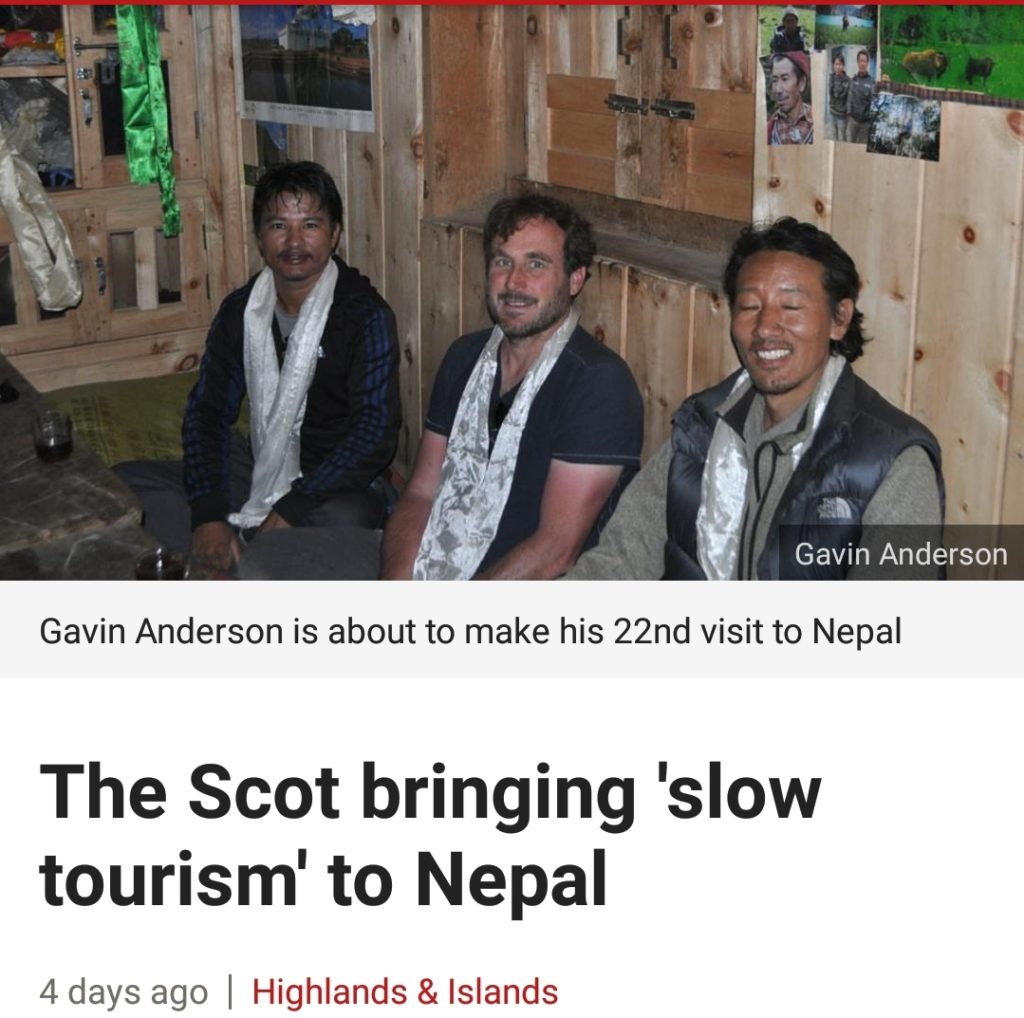
A Scot is working with communities in remote valleys of north west Nepal to help them boost their fragile economies (nền kinh tế yếu ớt) through tourism.
Gavin Anderson, who grew up in Findhorn and lives in Ullapool, leads expeditions (chuyến đi du ngoạn) to the Dolpo region.
With his Nepal-based business partner, Jigme Lama, he takes tourists to communities “bypassed” (đi đường vòng để tránh cái gì) by other tours.
The expeditions are based on “slow tourism”, holidays where people spend longer exploring fewer places.
The communities involved – Ringmo, Rike and Rechi – were rarely or never visited before by tourists.
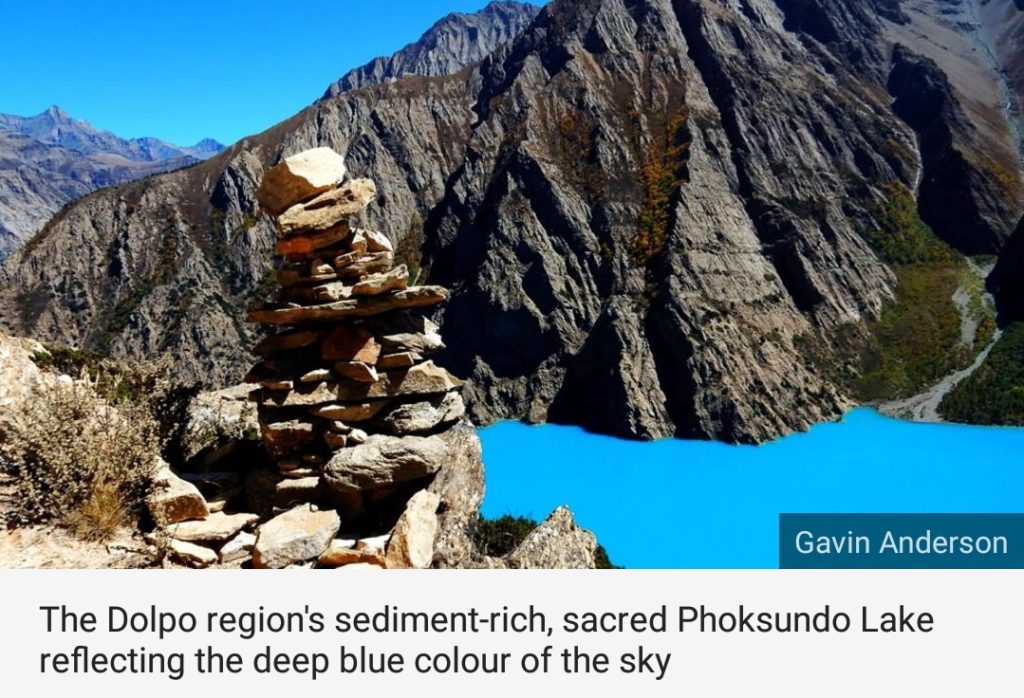
Mr Anderson has a background in international development and travelled the world while doing that work.
With his family, he runs a holiday cottage business in Ullapool in the north west Highlands. (lưu ý số nhiều – Tây Nguyên: the central highlands of Vietnam)
He describes Nomadic (thuộc du mục) Skies, his fledgling (gài tên vào cung- ở đây là săn bắn) business with Mr Lama, as his “passion”.
The idea for the expeditions followed a visit to Nepal in 2015 for the UK Department of International Development.
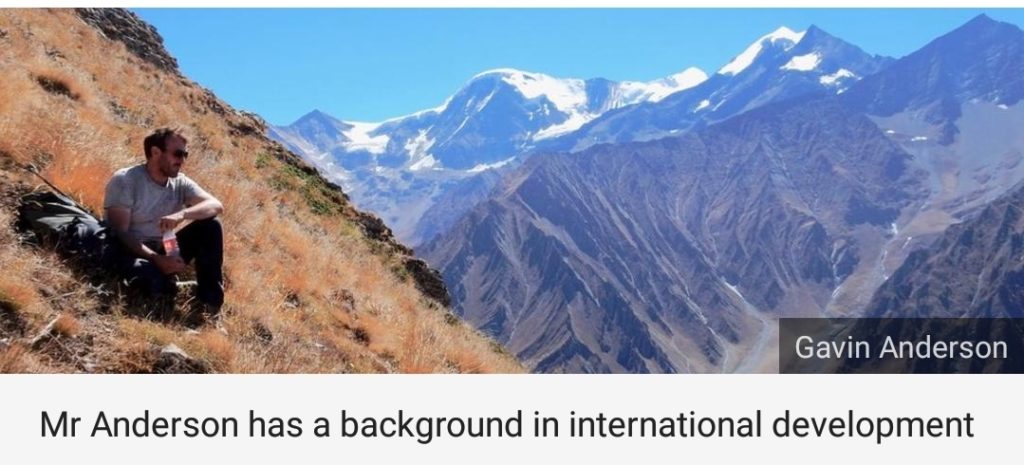
The first expedition, which was mainly made up of people from Scotland, was run last year. Getting to the region involves taking two internal flights. (chuyến bay nội địa)
Mr Anderson said: “As with parts of the Highlands and Islands, the valleys of north west Nepal are suffering from depopulation. (sự giảm dân số)
“Other expeditions that arrive in the Dolpo bring their own guides and mules, (con la: là con của con lừa đực donkey và con ngựa cái horse) and don’t use local labour.”
He said the region’s fragile economy had further suffered because of a collapse in the trade of locally-sourced salt. Mr Anderson said new roads had provided access to cheap imports.
He said: “Jigme, a local to the north west valleys of Nepal, and I hire local people as guides. We are speaking to locals about training up female guides. They would be the first female guides for that area.”
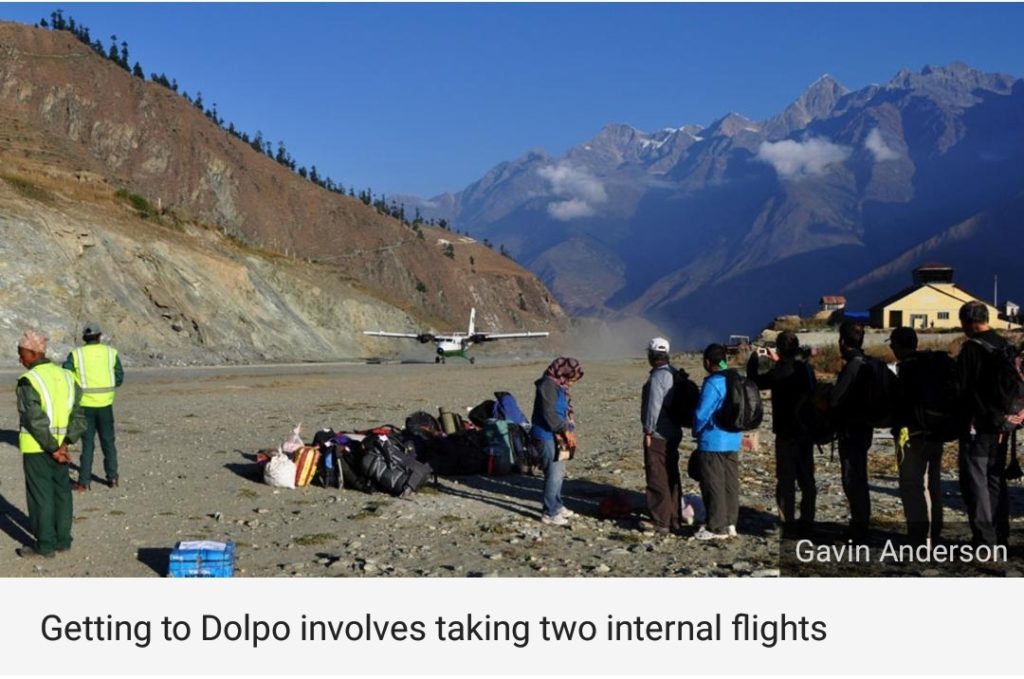
Mr Anderson added: “Those on the expeditions spend days living in tents in the communities. They can then learn about the culture, religion and language of the local people.”
Among Mr Anderson’s aspirations (khát vọng) for the business is to set up campsites (khu vực cắm trại) using traditional gur-style tents and the sites run by the communities.
“In Dolpo, the people, especially young people, are as interested in where I come from and what my home is like as I am in their region and lives.”
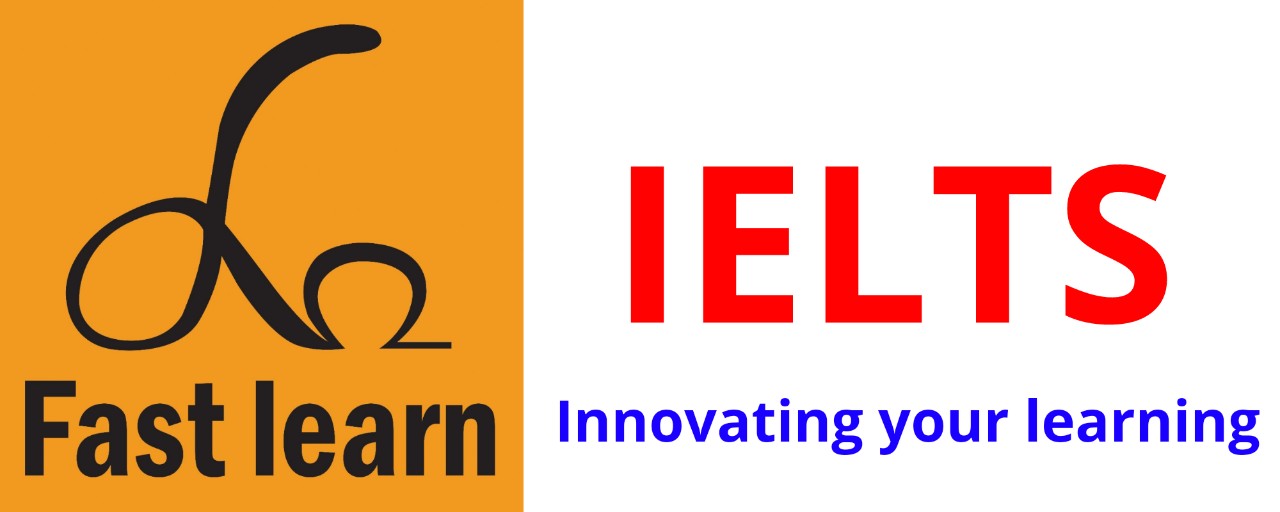
2 bình luận về “Reading about the topic of Tourism”